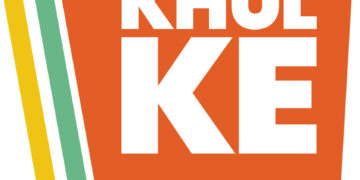The 2021-2022 period saw many new investors dip their toes in the investment whirlpool as the onslaught of Initial Public Offerings (IPOs) and strong market tailwinds build an attractive investment story. However, the recent correction has scared off many of the newcomers and made them question their decision to enter the equity market in the first place. If you are thinking of getting into the game, and want to try your luck at investing now that the dust has settled, make sure to ask yourself the following questions before you take the first step.
- What is my real risk appetite?
We all stretch the boundaries of how much risk we can take in good markets and understand ourselves honestly only when markets correct. Investing and risk taking is deeply personal and what is right for me might not necessarily be right for you.The sharp down days are a time to reflect on how much stress corrections cause you and what risk levels, and consequently equity levels, you are actually comfortable with. Assess honestly and calibrate as you move forward.
- Do I understand what I was investing in?
Exotics are products of bull markets. In times of market buoyancy and general market optimism new themes, ideas, and even geographies come to the market and are lapped up, even when investors only have a partial understanding of the same. Past returns also look very juicy at such times.Corrections are painful in every asset class but they are much harder when you don’t understand the product and the reason behind its downfall. If it feels like a black box then don’t buy it, even at the risk of looking less intelligent. If you are not ready to invest abroad, for instance, do not take the risk, even though all your friends may advise it.
- Was it hype or hard facts?
A common reason for buying financial products in this cycle is the relatability – if your friend bought it or someone on Twitter with a lot of followers made money on it, you may want to grab a slice of the profit pie as well. This is not the right reason to make an investment decision. A majority of the people only publish the good performance and go into hibernation when their investment decisions result in a loss. Very few people tweet or make statements about loss making investments. Hype crumbles in a correction and gives way to hard facts – in stocks and in other asset classes. Thus, you should only make investments that you understand and are backed by hard facts.
- Why am I investing?
We invest not to participate in a horse race but for a purpose – to meet goals. When those goals are defined, we invest with known time horizons and that makes being a long-term investor a lot easier.Use this time to think about why you are investing and write down those goals. Link your investments to those goals. If you’re truly investing in equities with a 7-year goal, for instance, remind yourself that and stick to the game. Do not let short-term volatility scare you off.
- Who am I taking advice from?
If you’re taking advice, and hopefully you are, there is no better time to judge the quality of advice than in a tough market. Good advisors give you the tough advice required to avoid land mines that unveil in a bad market.They talk about risk as much or more than they talk about returns. Good advisors also stand by you when things go wrong – they over communicate rather than disappear. And good advice stands out when compared to a YouTube tip, in a bad market. So, ask yourself, who have I been listening to?
There is no harm in making mistakes and there is no better teacher than a good correction. The current correction is perhaps the first one experienced by a large number of investors. Don’t let this scare you since the first thing you need to know about the equity market is that it moves in cycles. So reflect, learn, and course correct. Happy evolving and happy investing. The post-correction future awaits!
Disclaimer: Ms. Radhika Gupta is the MD & CEO of Edelweiss Asset Management Limited (EAML) and the views expressed above are her own.
MUTUAL FUND INVESTMENTS ARE SUBJECT TO MARKET RISKS, READ ALL SCHEME RELATED DOCUMENTS CAREFULLY
An investor education initiative by Edelweiss Mutual Fund
All Mutual Fund Investors have to go through a onetime KYC process. Investor should deal only with Registered Mutual Fund (RMF). For more info on KYC, RMF and procedure to lodge/redress any complaints, visit – https://www.edelweissmf.com/kyc-norms





































